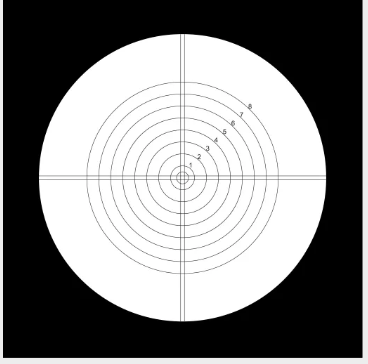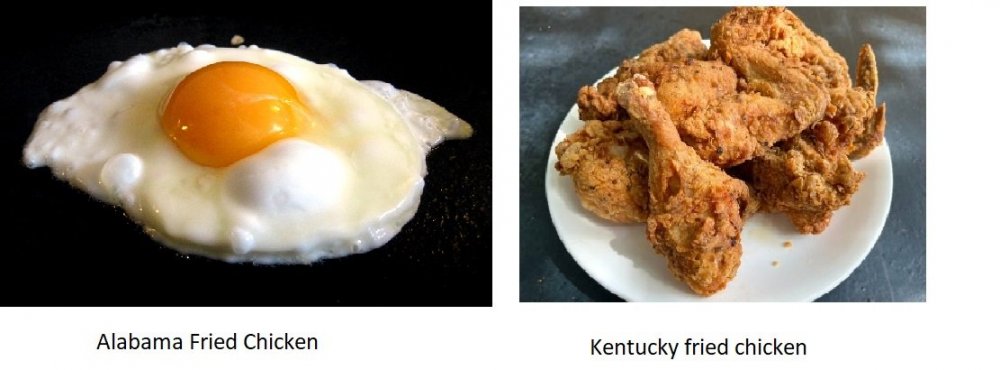

John Cuthber
-
Posts
18285 -
Joined
-
Last visited
-
Days Won
46
Content Type
Profiles
Forums
Events
Posts posted by John Cuthber
-
-
Just a thought.
As far as I can tell, there could be two "versions" of me.
One has a tendency to open the blood vessels near the skin, and the other tends to restrict them.
Both are capable of maintaining the same core body temperature ; but they have different "power requirements" (because they have different skin temperature).
If both versions consumed the same number of calories, either one would gain weight, or the other would lose it.
There are, of course, other possibilities for how a similar outcome could occur; gut bacteria variation would be an obvious place to look.0 -
19 hours ago, J.C.MacSwell said:
Hard to make any future claim you're "just a patsy" after that post!
It's the reticule from an autocollimator.
https://moeller-wedel-optical.com/en/product/reticles/
What were you thinking?1 -
For a moment, I thought that looked like this. But it's probably just me...
 3
3 -
8 hours ago, MigL said:
Pure gold is resistant to all acids, except a mixture of Hydrochloric and Nitric, called Aqua Regia.
I would think any mixture, or alloy, of gold would have its 'impurities' affected by other acids, so that might be a simple test ?sand off a few grains, and drop some readily available Hydrochloric or Sulfuric acid on them; see if you get any bubbling action.
Doesn't really work.
Only the impurity atoms on the outside are exposed to the acid; the rest are effectively protected by being "gold plated".
Density is a better option.
Even this is pretty good.
https://en.wikipedia.org/wiki/Touchstone_(assaying_tool)
On a completely pointless pedantic note, there's (at least) one acid which will attack gold.
1 -
It seems that America isn't really "good" it's just "big".
There are (if Google is to be believed) about 5300 universities in the USA. About 200 are on the "top 1000" list. That's about 3.8%
There are 166 in the UK of which 25 are on the "top 1000" list which is about 15%
France has 71 of which 27 are on the Shanghai list. 38% is impressive.
Germany is confusing.
"a total of 423 higher education institutions in Germany, including 108 universities, 211 universities of applied sciences, 52 colleges of art and music, 30 colleges of public administration, 16 theological universities and 6 colleges of education."0 -
If the ammonia gets oxidised to nitric acid, then it will acidify the soil
0 -
On 3/23/2024 at 11:37 PM, Guille Yacante said:
Because these poisons are not "pesticides", but biological weapons.
If someone is deliberately exposing the world to organochlorine compounds, what are they hoping to gain and how are they avoiding poisoning themselves?
A weapon needs a target; who is it?0 -
It's going to spoil Christmas...
1 -
Though I made it humorously, the point I was making is very simple.
They don't give you antibiotics unless you are sick.
So the question is, which is likely to have a greater effect on fertility; the drugs or the infection?
It's perfectly plausible that not taking the pills will leave you dead.
And that's going to reduce our fertility much more than the drugs will.
(An infection may also reduce it)
Doctors and health insurance systems (private or nationalised) are fairly good at doing risk/ benefit analyses.
Only focussing on the risks of antibiotics is just as foolish as ignoring them.0 -
I checked the data.
It turns out that every man who died from an infection is infertile.0 -
I think you just discovered Kirchhoff's radiation law.
https://en.wikipedia.org/wiki/Kirchhoff's_law_of_thermal_radiation0 -
On 8/9/2023 at 12:33 AM, MSC said:
What is the nature of our existence?
Ephermeral.
0 -
In all sensible probability, nine lives won't be enough.
0 -
Do you understand that those classifications are hierarchical?
All rosales are rosids
All prunus are rosaceae
And all of them are plants
0 -
With a lot of trouble and care (and a mass spectrometer) you can measure acid base equilibria in the gas phase with no solvent present.
Many people have got PhDs by doing this, but I'm not sure it's had much wider use. (By wider, I mean outside the lab)
You don't get "H+" ions in water. You get a hydrated version, typically modelled as [H9O4]+
So you are almost always looking at how strong an acid is compared to water.
In principle, if you have just liquid ammonia, there are always some protons around to soak up.
They arise from ammonia acting as a base.
2 NH3 --> [NH2] - + [NH4]+
The extent of that reaction is tiny, but not zero. (It's about 1 in 10 ^33)0 -
-
5 minutes ago, Alfred001 said:
, would you expect the addition of dextrose to affect the pH in either direction
No, or at least, only very slightly.
More sugar would draw water in from the surrounding tissues (and from the blood) and that would dilute the acid a bit, raising the pH.0 -
54 minutes ago, npts2020 said:
I'm pretty sure I never said expansion was eternal, only possibly the universe. If you can't distinguish between the two propositions, I will be happy to elucidate.
Does the universe have a calendar?
How did/ does it know when to switch the expansion on and off?0 -
On 3/2/2024 at 11:41 AM, npts2020 said:
This could be an interesting discussion on its own but if you believe modern cosmologists, there is a point where the universe (possibly the majority of it) is expanding away from us faster than the speed of light. It seems to me, that would explain why the entire sky isn't bright and does little to show whether the universe is infinite or not.
And, if the universe is accelerating away from me, and has been doing so eternally, why is (any of) it still here?
The question was "What makes you think the universe was "made up" and hasn't always existed?"0 -
4 hours ago, npts2020 said:
What makes you think the universe was "made up" and hasn't always existed?
Among other things...
https://en.wikipedia.org/wiki/Olbers's_paradox0 -
-
Every 10 minutes the temperature/ humidity sensor in my garden sends data (by radio) to a display in my house- something like this.
https://www.weathershop.co.uk/technoline-ws9130-weather-station
(Mine is a different brand)
And some device like that is vastly more likely to be the source of the RF which you see than any sort of "attack".
If you are experiencing health problems you should consult a doctor.0 -
https://en.wikipedia.org/wiki/Glass-ceramic#Glass_ceramics_in_cooktops
And
"An interesting property of these glass-ceramics is their thermomechanical durability. Glass-ceramic from the LAS system is a mechanically strong material and can sustain repeated and quick temperature changes up to 800–1000 °C. The dominant crystalline phase of the LAS glass-ceramics, HQ s.s., has a strong negative coefficient of thermal expansion (CTE), keatite-solid solution as still a negative CTE but much higher than HQ s.s. These negative CTEs of the crystalline phase contrasts with the positive CTE of the residual glass. Adjusting the proportion of these phases offers a wide range of possible CTEs in the finished composite. Mostly for today's applications a low or even zero CTE is desired. Also a negative CTE is possible, which means, in contrast to most materials when heated up, such a glass-ceramic contracts. At a certain point, generally between 60% [m/m] and 80% [m/m] crystallinity, the two coefficients balance such that the glass-ceramic as a whole has a thermal expansion coefficient that is very close to zero." from teh same page.0 -
The actual data you need is a Henry's law constant.
https://acp.copernicus.org/articles/15/4399/2015/acp-15-4399-2015.pdf
then you can calculate how much stuff gets into teh vapour phase from a solution of a given concentration and then you can compare that against the permitted concentrations.
Good luck.
You might also want to know about these.
https://assets.publishing.service.gov.uk/media/5a7ce177e5274a2ae6eeb560/scho0307bmkt-e-e.pdf0


The Official JOKES SECTION :)
in The Lounge
Posted
He sought the advice of a mathematician who told him to work it out with a pencil.